How true is Regina King's Cincinnati-shot biopic on Shirley Chisholm?
- Oops!Something went wrong.Please try again later.
Shirley Chisholm was the first Black woman elected to Congress, and a new movie is telling her story.
"Shirley," out now on Netflix, focuses on Chisholm's run for the 1972 Democratic presidential nomination and the events surrounding her campaign.
It was filmed in Cincinnati in 2021 and 2022.
Chisholm was a force in Congress, fighting for her constituents while facing racism and sexism. She also influenced some of today's politicians, a few of whom are shown in the film.
The biopic stars Regina King as Chisholm and was written and directed by John Ridley.
Did another congressman really confront Chisholm about pay?
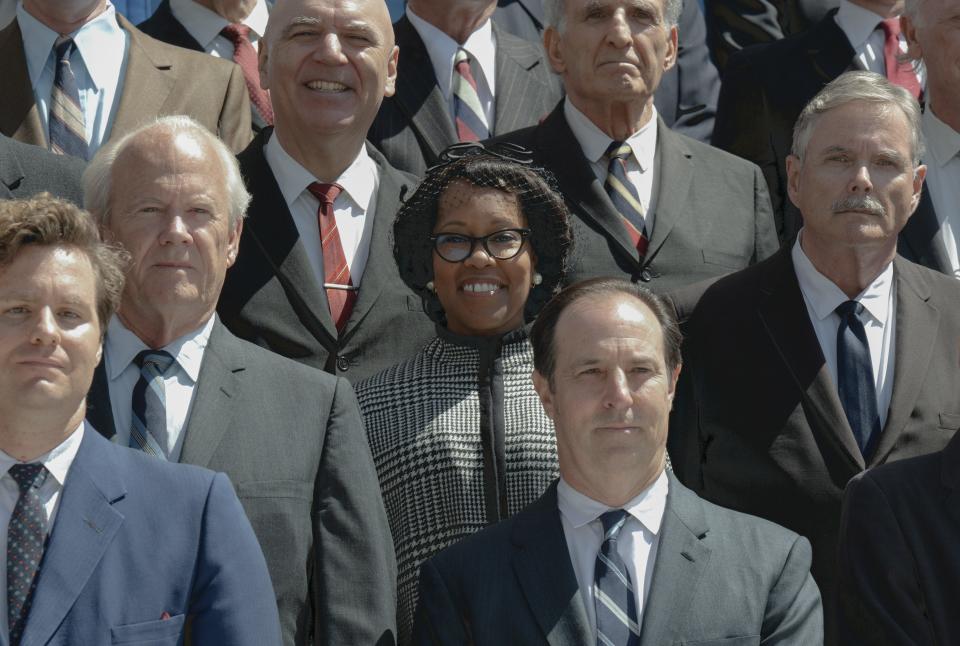
In the film, a congressman (Robert Craighead) stops Chisholm in the hallway to tell her he can't believe she makes the same salary as he does, and despite the smile on his face, the comment is clearly antagonistic. Chisholm hits back, saying he can steer clear of her if it bothers him so much.
Chisholm really was repeatedly confronted by other congressmen about pay, says author and professor Glenn L. Starks, Ph.D., who co-wrote "A Seat at the Table: The Life and Times of Shirley Chisholm" (2024) with F. Erik Brooks, Ph.D.
While the character in the movie may be a combination of several people, there was one Southern congressman in particular, Starks says, who kept pointing out how much money she made, expressing disbelief that a Black woman would be in Congress and earn the same amount he did. Chisholm stood up to him, Starks said, and would respond, "Yes, I do."
Did Chisholm and her sister really have such a distant relationship?
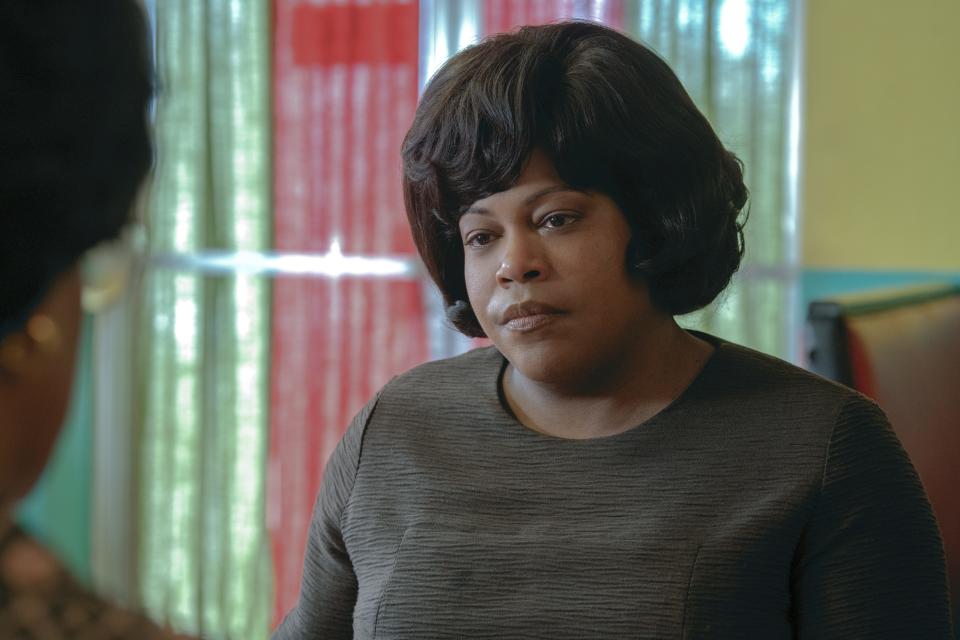
Yes, Chisholm's relationship with her sister, Muriel (played by Reina King, Regina King's sister, in the film), wasn't very warm. Her relationship with all of her sisters (she had two others in addition to Muriel) was reportedly a little frosty.
"It's because they believed Shirley was their father's favorite," Starks says. Money she received from their father may have put a further strain on the relationship.
But when Chisholm died in 2005, Muriel did attend her funeral in Florida, though her other sister did not, Starks says.
Did Chisholm really push back on agricultural assignment?
Yes, Chisholm did. In the film, Chisholm is told that Speaker of the House John McCormack (played by Ken Strunk), has assigned her to serve on the House Agriculture Committee. As a representative for Brooklyn, she thought the placement wasn't relevant to her district and appealed the appointment.
She was eventually also placed on the Veterans' Affairs Committee, but she did make some changes while on the agricultural committee. It's not shown in the film, but Chisholm did play a role in the creation of the Special Supplement Nutrition Program for Women, Infants and Children (WIC) program and expansion of the food stamp program.
What was Chisholm's relationship to Barbara Lee?
The movie shows so many people who worked with Chisholm through her presidential campaign, and there is one person in particular who speaks at the end of the film: the real Congresswoman Barbara Lee.
Chisholm had a huge influence on the life and career of Barbara Lee (played by Christina Jackson), beyond what is shown in the film.
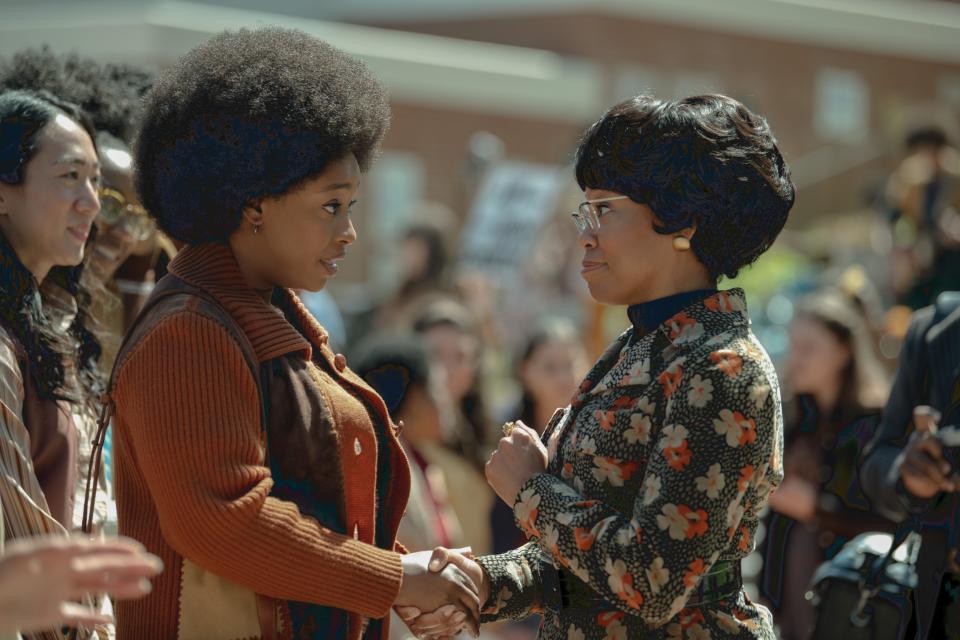
"They first met when Barbara Lee was in college," Starsk says. "She was a single mother and on welfare. She had to write a paper about politics. She went to visit Shirley Chisholm and told her she didn't like politics and was only writing the paper because she had to." Chisholm remind Lee how important politics are, Starks says, and Lee later worked with Chisholm.
"To this day, the influence is still there," Starks says. "When Kamala Harris was inaugurated, Barbara Lee attended and actually wore Shirley Chisholm's pearls to the inauguration."
Lee has been an influential congresswoman herself, Starks says, and her whole political career stemmed from meeting and working with Chisholm when she was a college student and young mother.
Did Chisholm really visit George Wallace after he was shot?
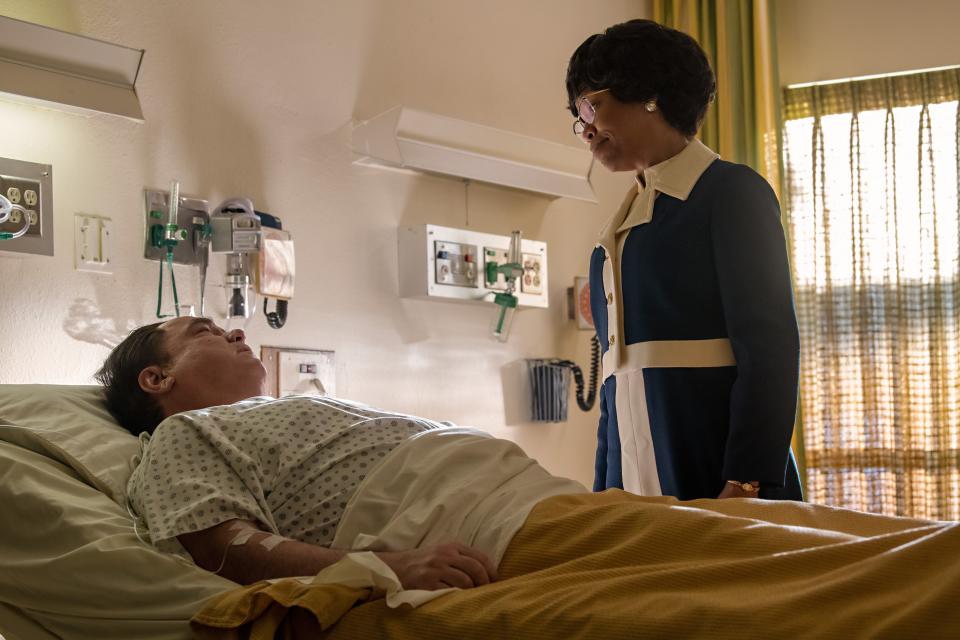
Yes, Chisholm did go to the hospital to visit political rival Alabama Gov. George Wallace when he was shot in 1972 in an assassination attempt. The visit was brief, lasting about 15 minutes. Her visit to Wallace, a supporter of segregation and other opposing ideologies, surprised Chisholm's supporters and Wallace himself, Starks says.
"People were shocked," Starks says. "Other politicians also went there. I think the only surprise by her going was because she was a Black female."
Lee was one of the people who questioned Chisholm about her visit to Wallace. Starks says Chisholm told Lee, "I'm treating him the same way a human being should be treated."
Did some of Chisholm's allies really switch support to McGovern at the last minute?
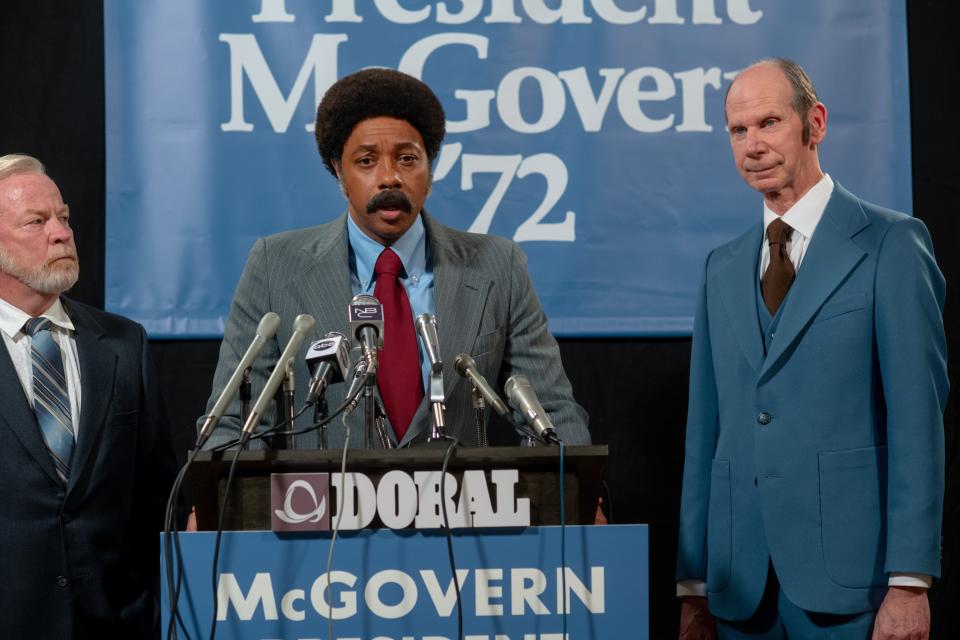
Yes. The film's focus on Chisholm's presidential campaign follows her seeking support — and delegates — from the members of the Congressional Black Caucus and allies.
"(Walter Fauntroy) really did at the last minute give all the promised delegates to (other possible nominee George) McGovern," Starks says, "and it really upset her."
And Chisholm really trusted Ron Dellums, and abruptly losing his support and not receiving his nomination at the convention was "a humongous betrayal," Starks says.
Did Chisholm really run for president to be a catalyst for change?
Toward the end of the film, Chisholm says her intention in running for president was to be a catalyst for change and show Americans their votes do matter. And yes, Starks says, that's a bit part of her motivation in politics.
"She was tired of all the disenfranchised voices not having a say in politics," Starks says. "Her whole life in Brooklyn, running for the New York Assembly, her whole life in Congress, she always ran as the underdog who went out and supported women's rights, gay rights, poor people. She supported people whose voices were not heard. She was tired of people getting votes from the Black community, but never doing anything for them. From the time she got involved in politics in college, it's really who she was."
This article originally appeared on USA TODAY: 'Shirley' fact check: How true is the Cincinnati-shot Netflix movie

